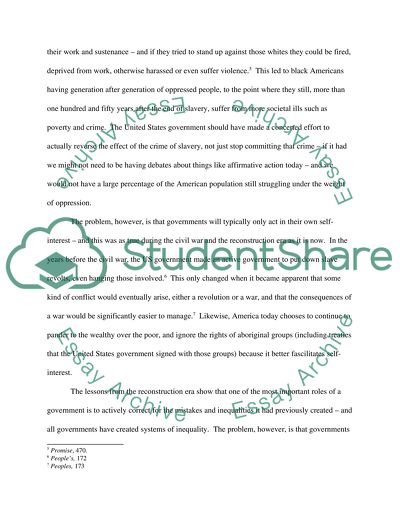Drawing upon the historical lessons of the Reconstruction Era and Essay. Retrieved from https://studentshare.org/history/1588710-drawing-upon-the-historical-lessons-of-the-reconstruction-era-and-cotemporary-times-what-should-the-role-of-government-be-in-society
Drawing Upon the Historical Lessons of the Reconstruction Era and Essay. https://studentshare.org/history/1588710-drawing-upon-the-historical-lessons-of-the-reconstruction-era-and-cotemporary-times-what-should-the-role-of-government-be-in-society.


